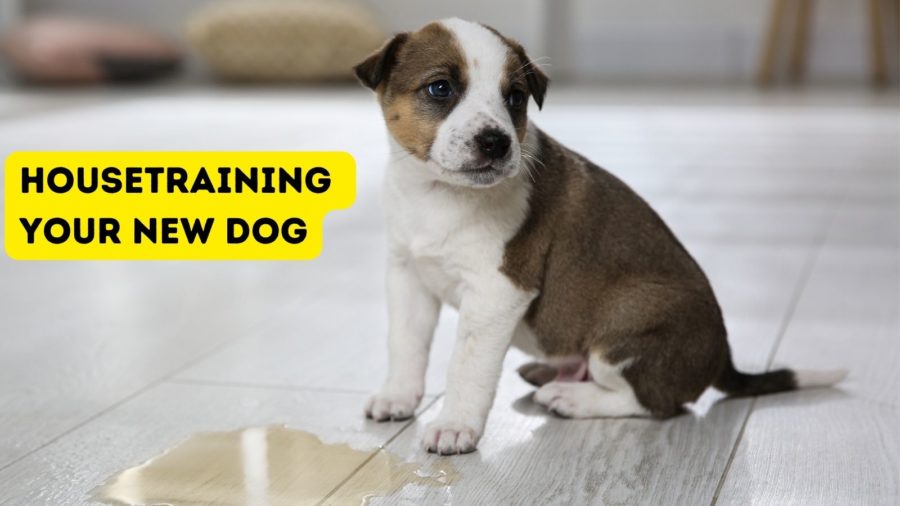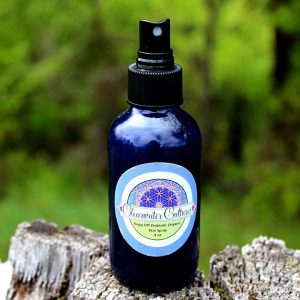
Oh, the joy of coming home to a surprise landmine in the middle of your living room! Yes, we have all been there – that dreaded moment when you discover that your beloved furry friend has decided to use your house as their personal restroom. It’s frustrating, it’s messy, and it can leave you questioning your life choices. But fear not, dear reader, for there is hope! In this article, we will explore the reasons why dogs poop in the house and provide you with effective strategies to tackle this smelly issue head-on.
Are you tired of playing a real-life version of Where’s Waldo? every time you step foot in your own home? Well, look no further! We have the ultimate guide that will help you understand why your dog insists on turning your house into a toilet and how you can put an end to this unpleasant habit. From exploring potential medical issues to analyzing your dog’s environment and behavior, we will leave no stone unturned in our quest to solve the mystery of the indoor poop. So grab your detective hat and let’s dive into this stinky investigation!
Dealing with the unfortunate situation of finding your beloved furry friend’s waste inside your house can be incredibly frustrating. It not only creates a mess that needs to be cleaned up, but it also indicates a potential issue with your dog’s behavior or health. Finding unexpected surprises on your carpet or furniture can lead to feelings of annoyance, inconvenience, and even embarrassment. Moreover, this recurring problem may strain the bond between you and your pet, as you struggle to understand the underlying cause behind their indoor accidents. Consequently, it becomes crucial to address this matter promptly and effectively to ensure a clean and harmonious home environment.
In understanding the reasons behind why dogs poop in the house, several factors come into play. Firstly, inadequate housebreaking or training could be the primary culprit. Dogs need to be taught where and when they are allowed to relieve themselves, and if this process is neglected or inconsistent, accidents are more likely to occur inside the house. Secondly, health issues, such as gastrointestinal problems or urinary tract infections, can contribute to a dog’s inability to control their bowel movements. In such cases, seeking veterinary attention becomes necessary to address these medical concerns. Finally, environmental changes or stressful situations can also trigger a dog to poop indoors. Moving houses, the arrival of a new family member, or a change in routine can all disrupt a dog’s natural bathroom habits and cause them to seek alternative spots within the house.
To tackle the predicament of dogs pooping in the house, it is essential to establish a consistent and positive reinforcement-based training routine. Utilizing rewards, such as treats or verbal praise, can help reinforce desired behaviors and encourage your dog to eliminate outside. Additionally, maintaining a regular feeding and walking schedule can aid in preventing accidents by allowing your dog to establish a predictable routine. It is also crucial to rule out any potential medical issues by consulting with a veterinarian. They can diagnose and treat any underlying health problems that may be contributing to your dog’s indoor accidents. By addressing these key factors and implementing the necessary measures, you can effectively reduce or eliminate the unpleasant experience of finding dog poop in your house.
Why is my dog pooping in the house?
Picture this: you come home after a long day at work, excited to see your furry friend waiting eagerly at the door. But instead of a wagging tail and a joyful greeting, you are met with a foul odor and a messy surprise on your living room floor. Your beloved pooch has left yet another present for you to clean up. This frustrating and unpleasant experience can leave any pet owner wondering why their dog is suddenly pooping in the house.
Lack of Proper Training
One of the most common reasons why dogs poop in the house is simply due to a lack of proper training. Just like humans, dogs need to be taught where it is acceptable to relieve themselves. If you haven’t properly trained your furry friend or if they were never trained by a previous owner, they may not know that going inside the house is not appropriate.
To tackle this issue, it’s important to establish a consistent routine for your dog. Take them outside regularly, especially after meals or naps, and reward them with praise or treats when they do their business in the designated area. With time and patience, your dog will learn that going outside is the preferred option.
Anxiety and Stress
Dogs can experience anxiety and stress just like humans, and this can manifest in various ways, including inappropriate elimination. Major life changes such as moving to a new home, the addition of a new family member (human or animal), or even the absence of their favorite person can trigger these emotions in our furry friends.
If you suspect that anxiety or stress is causing your dog to poop in the house, it’s crucial to address the underlying issue. Consider providing them with a safe and comforting space, such as a crate or a cozy corner with their favorite toys and blankets. Additionally, engaging in regular exercise and mental stimulation can help alleviate stress and anxiety in dogs.
Medical Conditions
In some cases, a dog pooping in the house may be a sign of an underlying medical condition. Gastrointestinal issues, such as diarrhea or constipation, can cause dogs to lose control of their bowel movements. Certain diseases, infections, or parasites can also lead to changes in bowel habits.
If you’ve ruled out training and behavioral issues, it’s essential to consult with your veterinarian. They can perform a thorough examination and run necessary tests to determine if a medical condition is causing your dog’s indoor accidents. Once the underlying issue is addressed, the appropriate treatment can be administered, and your furry friend will hopefully regain control of their bowel movements.
Aging and Incontinence
As dogs age, just like humans, they may experience a decline in muscle control and bladder function. This can lead to incontinence, making it challenging for them to hold their bowel movements until they make it outside.
If your dog is getting older and has started pooping in the house, it’s important to be understanding and patient. Provide them with easy access to outdoor areas and consider using doggy diapers or belly bands to prevent accidents inside the house. Remember, aging is a natural process, and with your love and care, you can make your dog’s golden years comfortable and dignified.
How to Stop Your Dog from Pooping in the House
Now that we’ve explored some of the reasons why dogs may poop in the house, let’s delve into how you can address and prevent this behavior.
Revisit Training
If your dog is pooping in the house due to a lack of training, it’s time to go back to basics. Establish a consistent routine for bathroom breaks and reinforce positive behavior with rewards and praise. Consider using commands such as go potty to signal to your dog what you expect from them when they are outside.
It’s important not to punish or scold your dog for accidents in the house, as this can create fear and anxiety. Instead, focus on positive reinforcement and redirecting their behavior to the appropriate location.
Create a Safe and Calming Environment
If anxiety or stress is the culprit behind your dog’s indoor accidents, creating a safe and calming environment can help alleviate their negative emotions. Provide them with a designated space where they feel secure, such as a crate or a cozy corner. Fill this area with their favorite toys, blankets, and maybe even an item that carries your scent to provide comfort in your absence.
In addition to a safe space, ensure your dog receives regular exercise and mental stimulation. Engaging in activities such as daily walks, interactive toys, and obedience training can help reduce anxiety and prevent unwanted behaviors, including pooping in the house.
Consult with Your Veterinarian
If you suspect a medical condition is causing your dog’s indoor accidents, consult with your veterinarian. They will be able to assess your furry friend’s overall health and conduct any necessary tests to identify underlying issues.
Based on their findings, your veterinarian may recommend dietary changes, medication, or other treatments to manage your dog’s condition and regain control of their bowel movements.
Manage Aging-related Incontinence
If your dog’s indoor accidents are due to aging and incontinence, there are several steps you can take to manage the situation. Providing easy access to outdoor areas through doggie doors or ramps can help them reach their bathroom spot more easily.
Consider using doggy diapers or belly bands to prevent accidents inside the house. These products are designed to contain any mess and make clean-up easier for you while keeping your dog comfortable and dry.
Remember, as your dog ages, they may require extra care and understanding. Be patient and provide them with the love and support they need during this stage of life.
The Importance of Consistency and Patience
Addressing and preventing a dog from pooping in the house requires consistency, patience, and understanding. Whether it’s a training issue, anxiety, a medical condition, or aging-related incontinence, finding the root cause is crucial to implementing the appropriate solution.
Remember to be kind and patient with your furry friend throughout this process. Punishment and scolding will only create fear and stress, potentially exacerbating the problem. Instead, focus on positive reinforcement and redirecting their behavior towards the desired outcome.
With time, effort, and a little creativity, you can help your dog overcome their indoor accidents and create a harmonious environment for both of you.
Dog Pooping In House
Having a dog that poops in the house can be frustrating and unsanitary. There are several reasons why a dog may engage in this behavior, including medical issues, lack of proper training, anxiety, or marking territory. It is important to address this issue promptly to prevent it from becoming a habit.One possible reason for a dog pooping in the house is a medical issue. If your dog is usually well-trained but suddenly starts having accidents indoors, it could be a sign of an underlying health problem. Conditions such as urinary tract infections, gastrointestinal issues, or parasites can cause a dog to have difficulty controlling their bowel movements. If you suspect a medical issue, it is crucial to take your dog to the veterinarian for a thorough examination.Another common reason for a dog pooping in the house is a lack of proper training. If a dog has never been taught where it is appropriate to eliminate, they may resort to doing it indoors. This is more common in puppies or newly adopted dogs that have not yet learned the rules of the household. Consistent crate training, frequent bathroom breaks, and positive reinforcement can help teach a dog where they should go to the bathroom.Anxiety can also be a contributing factor to a dog pooping in the house. Dogs that are anxious or stressed may have difficulty controlling their bowels. Separation anxiety, changes in routine, or fear of certain environments can trigger this behavior. Creating a calm and secure environment for your dog, providing mental stimulation, and seeking professional help if needed, can help alleviate their anxiety and reduce accidents in the house.Additionally, some dogs may poop in the house as a way of marking their territory. This behavior is more common in unneutered male dogs but can occur in females as well. Marking typically involves leaving small amounts of feces in various locations to assert dominance or communicate with other animals. Neutering or spaying your dog, along with consistent training and proper socialization, can help curb this behavior.In conclusion, a dog pooping in the house can have various underlying causes. It is essential to address this issue promptly by identifying the root cause and implementing appropriate training techniques or seeking veterinary assistance if necessary. With patience, consistency, and understanding, it is possible to overcome this behavior and create a clean and comfortable living environment for both you and your dog.
Listicle: Dog Pooping In House – Causes and Solutions
1. Medical Issues: Check for any underlying health problems that may be causing your dog to poop in the house. Consult with a veterinarian to rule out any medical conditions and get appropriate treatment.2. Lack of Proper Training: Ensure your dog receives consistent and positive reinforcement-based training to teach them where it is appropriate to eliminate. Use crate training and frequent bathroom breaks to establish good habits.3. Anxiety and Stress: Identify and address any sources of anxiety or stress in your dog’s environment. Provide mental stimulation, create a calm atmosphere, and consider professional help if needed.4. Marking Territory: If your dog is unneutered, consider getting them neutered or spayed to reduce marking behavior. Implement consistent training and socialization to discourage territorial marking.5. Cleaning and Odor Removal: Clean up accidents promptly and thoroughly to remove any lingering odor that may encourage your dog to repeat the behavior. Use pet-friendly cleaning products.6. Consistency and Routine: Establish a consistent bathroom routine for your dog, including regular feeding times and scheduled bathroom breaks. Dogs thrive on routine and predictability.7. Patience and Positive Reinforcement: Remember to be patient with your dog during the training process. Use positive reinforcement, such as treats or verbal praise, to reward desired behavior.8. Seek Professional Help: If your dog’s pooping in the house persists despite your efforts, consult with a professional dog trainer or animal behaviorist for personalized guidance and assistance.By following these tips and implementing appropriate strategies, you can help prevent your dog from pooping in the house and create a harmonious living environment for both you and your furry friend.
Question and Answer: Dog Pooping In House
1. Why is my dog pooping in the house?
There can be several reasons why a dog may start pooping indoors. It could be due to medical issues such as gastrointestinal problems or urinary tract infections. Additionally, it could be caused by behavioral issues, lack of proper training, anxiety, or changes in their environment.
2. How can I stop my dog from pooping inside the house?
To address this issue, it’s important to determine the underlying cause. If it’s a medical problem, consult with a veterinarian to get appropriate treatment. For behavioral issues, consistency in training, establishing a routine, and positive reinforcement are key. Providing ample opportunities for outdoor bathroom breaks, regular exercise, and mental stimulation can also help prevent accidents indoors.
3. My dog is house-trained but started pooping inside suddenly. What could be the reason?
If your dog was previously house-trained but has recently started pooping indoors, it may indicate an underlying medical problem. It’s advisable to rule out any health issues by visiting a veterinarian. Sudden changes in behavior can also be triggered by stress, anxiety, or changes in the household or daily routine.
4. Can diet affect my dog’s tendency to poop inside the house?
Absolutely. A poor diet lacking in essential nutrients or sudden dietary changes can lead to digestive issues, causing dogs to experience more frequent or urgent bowel movements. Ensuring your dog has a balanced and appropriate diet, and gradually transitioning to new food if necessary, can help regulate their bathroom habits.
Conclusion of Dog Pooping In House
In conclusion, when a dog starts pooping inside the house, it is important to identify the root cause. Whether due to medical issues, behavioral problems, or environmental changes, addressing the underlying cause is crucial for resolving the issue. By providing proper training, consistent routines, and seeking veterinary advice when needed, you can help your dog develop appropriate bathroom habits and maintain a clean living environment.
Dear readers,
First of all, let me start by saying that I understand the frustration and annoyance that comes with finding your beloved furry friend leaving a surprise in the house. It can be quite a mess to deal with, not to mention the unpleasant odor that lingers. However, before you let frustration take over, let’s try to approach this issue with a creative mindset and find some effective solutions together.
One possible reason why your dog may be pooping in the house is due to a lack of proper training. Dogs need to be taught where it is appropriate to relieve themselves, and it’s essential to establish a routine from the beginning. By consistently taking your dog outside at designated times, they will come to associate that space with bathroom breaks. Additionally, rewarding them with treats and praise when they do their business outside will reinforce the desired behavior.
Another factor to consider is whether your dog is experiencing any medical issues. Sometimes, dogs may have accidents indoors due to an underlying health problem. If you notice any changes in your dog’s behavior or patterns, it’s crucial to consult with a veterinarian to rule out any medical conditions that could be contributing to the problem.
Lastly, it’s important to remember that accidents happen, even with the most well-trained dogs. Instead of getting upset, try to remain patient and understanding. Punishing your dog after the fact will only confuse them and may cause anxiety, making the problem worse. Instead, focus on positive reinforcement and redirecting their behavior to the appropriate place.
In conclusion, dealing with a dog that poops in the house can be challenging, but with patience, consistency, and understanding, you can overcome this issue. Remember to establish a routine, rule out any medical concerns, and reward positive behavior. By taking a creative approach and maintaining a positive attitude, you’ll be well on your way to a house that remains accident-free.
Wishing you all the best in your dog parenting journey!
Sincerely,
[Your Name]




